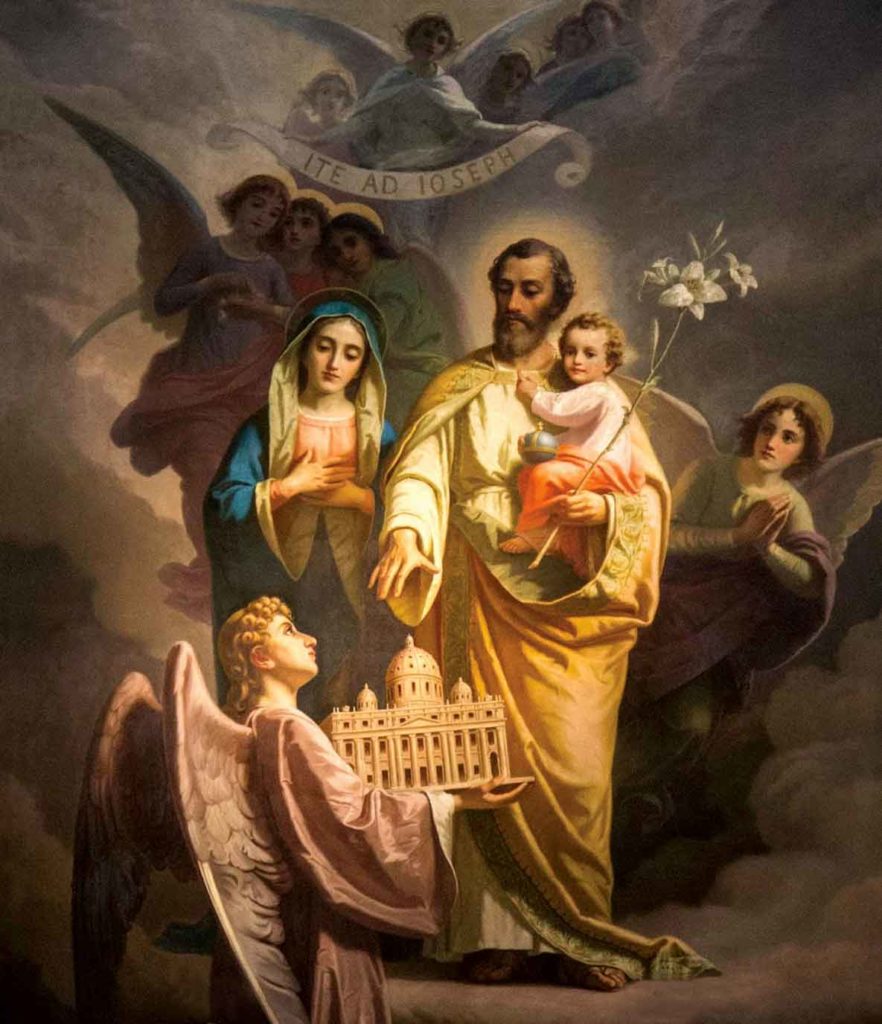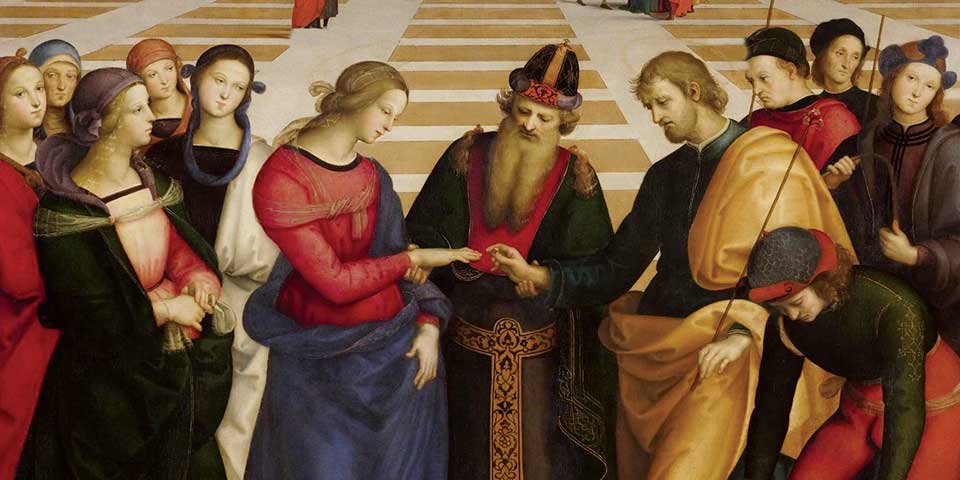 Once again this year, the Lenten journey is interrupted by the great solemnity in honor of St. Joseph, the Church’s most powerful and humble saint. Resounding in the celebration of this day is the remembrance of Pope Gregory XV, who in 1621 declared March 19 a feast of precept. The evangelist Matthew, giving greater prominence to the Foster Father of Jesus, points out that through him, Jesus was legally included in the Davidic lineage, and thus fulfils the Scriptures in which the Messiah was prophesied as the son of David. Joseph’s role certainly cannot be reduced to this legal aspect. He is the model of the “righteous” man, whose law, however, is not a sum of prescriptions and prohibitions, or a simple observance of norms, but instead is presented as a word of love, and an invitation to dialogue. St. Joseph’s life is to enter into this dialogue and to find, behind the norms and in the norms, the love of God. He is an obedient man who surrenders his life to a project that transcends him, who fully embraces a work that is God’s initiative by taking care of the people entrusted to him, and who stays by Mary’s side as a faithful spouse, while protecting and defending the child Jesus as a responsible father figure.
Once again this year, the Lenten journey is interrupted by the great solemnity in honor of St. Joseph, the Church’s most powerful and humble saint. Resounding in the celebration of this day is the remembrance of Pope Gregory XV, who in 1621 declared March 19 a feast of precept. The evangelist Matthew, giving greater prominence to the Foster Father of Jesus, points out that through him, Jesus was legally included in the Davidic lineage, and thus fulfils the Scriptures in which the Messiah was prophesied as the son of David. Joseph’s role certainly cannot be reduced to this legal aspect. He is the model of the “righteous” man, whose law, however, is not a sum of prescriptions and prohibitions, or a simple observance of norms, but instead is presented as a word of love, and an invitation to dialogue. St. Joseph’s life is to enter into this dialogue and to find, behind the norms and in the norms, the love of God. He is an obedient man who surrenders his life to a project that transcends him, who fully embraces a work that is God’s initiative by taking care of the people entrusted to him, and who stays by Mary’s side as a faithful spouse, while protecting and defending the child Jesus as a responsible father figure.
On December 8, 2020, the Solemnity of the Immaculate Conception, Pope Francis included himself in a path already traced by his predecessors, and gave the people of God an Apostolic Letter dedicated to the great figure of St. Joseph, Patres Corde. The pope addresses this saint as one of the most decisive figures to look to, perhaps simply because each time we encounter St. Joseph’s extraordinary and powerful presence in the Gospel, he is confronting difficult situations. We realize that his person makes a difference in adversity:
“Popular trust in Saint Joseph is seen in the expression “Go to Joseph”. […] As a descendant of David (cf. Mt 1:16-20), from whose stock Jesus was to spring according to the promise made to David by the prophet Nathan (cf. 2 Sam 7), and as the spouse of Mary of Nazareth, Saint Joseph stands at the crossroads between the Old and New Testaments.” (Patris Corde n.1)
 Pope Francis wishes that the whole world would turn its gaze to St. Joseph, a man from whom we can learn something, who because of his immense discretion, prolonged silence, and industrious creativity, had the extraordinary ability to follow God in spite of everything, placing unconditional trust in Him even in the most hostile situations. It is precisely his silence that is one of the most important aspects to emphasize. A silence that St. Joseph permeated with contemplation of the mystery of God, a silence that does not manifest an inner emptiness, but on the contrary, is a fullness of faith that he carries in his heart, and that guides his every thought and action. A silence, that in unison with Mary, treasures the Word of God which is known through the Holy Scriptures. It is a silence woven of constant prayer, and of unreserved reliance on Divine Providence. St. Joseph is the example of how each of us in prayerful silence can learn to listen to how the Lord reveals Himself every day and becomes incarnate in the history of our existence.
Pope Francis wishes that the whole world would turn its gaze to St. Joseph, a man from whom we can learn something, who because of his immense discretion, prolonged silence, and industrious creativity, had the extraordinary ability to follow God in spite of everything, placing unconditional trust in Him even in the most hostile situations. It is precisely his silence that is one of the most important aspects to emphasize. A silence that St. Joseph permeated with contemplation of the mystery of God, a silence that does not manifest an inner emptiness, but on the contrary, is a fullness of faith that he carries in his heart, and that guides his every thought and action. A silence, that in unison with Mary, treasures the Word of God which is known through the Holy Scriptures. It is a silence woven of constant prayer, and of unreserved reliance on Divine Providence. St. Joseph is the example of how each of us in prayerful silence can learn to listen to how the Lord reveals Himself every day and becomes incarnate in the history of our existence.
On December 8, 1870, with the degree Quemadmodum Deus, Pope Pius IX entrusted the Church to the protection of St. Joseph and proclaimed him “Patron of the Universal Church”. These were difficult times for the Church and the papacy. The pontiff himself, in three separate speeches (1928, 1935, and 1937), points to St. Joseph as the Church’s surest hope after the Virgin: “a powerful aegis of defence against the efforts of world atheism.”
In questa grande solennità continuiamo, con tutto il cuore, a innalzare le nostre suppliche alla figura di questo grande Santo, certi che, come dice Santa Teresa D’Avila: «Non è mai successo che io mi sia rivolta a San Giuseppe e non sia stata ascoltata».
San Giuseppe, Patrono della Chiesa, prega per noi.

